
A noun in Afrikaans is called a selfstandige naamwoord, which literally translates as “independent name word.” That makes sense, considering that nouns are the names of people, places, animals, things, and ideas or concepts. Yet, when looking at any sentence, what is a noun in Afrikaans?
The answer to that isn’t overly simple, like in any other language, but that’s the nature of grammar for you. That said, it’s not impossibly difficult, so why not learn the difference between a common noun in Afrikaans and a collective noun in Afrikaans at AfrikaansPod101? We make it easy for you!
Take a look at this list of the Fifty Most Common Nouns in Afrikaans, for instance. It’s possible to speak like a native Afrikaner with our help!
For this article, we won’t venture into the classification of nouns in Afrikaans grammar, but rather supply you with an excellent list of the most useful ones.
Tip: Here’s a trick to identify common nouns easily in any sentence. If you can meaningfully use the word together with an article (a, the / ‘n, die), it’s a noun!

Table of Contents
- Nouns in Afrikaans: Home Appliances (huis toestelle)
- Nouns in Afrikaans: Technology (tegnologie)
- Nouns in Afrikaans: Transport (vervoer)
- Nouns in Afrikaans: Services (dienste)
- Nouns in Afrikaans: Careers and Jobs (loopbane and werk)
- Nouns in Afrikaans: Animals
- AfrikaansPod101 Teaches You the Best Nouns – Easily and Fast!
1. Nouns in Afrikaans: Home Appliances (huis toestelle)
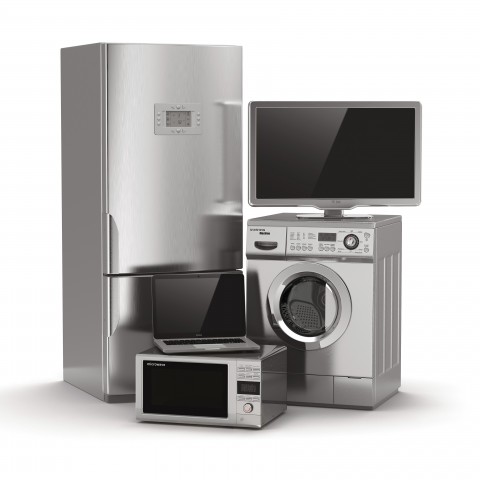
Noun: yskas and vrieskas
Translation: “fridge” and “freezer”
Use: Die yskas is splinternuut, maar die vrieskas is nie.
Translation: “The fridge is brand new, but the freezer is not.”
Noun: stoof and oond
Translation: “stove” and “oven”
Use: Gebruik jy die stoof of die oond?
Translation: “Do you use the stove or the oven?”
Noun: ketel
Translation: “kettle”
Use: Skakel die ketel af, asseblief.
Translation: “Please switch off the kettle.”
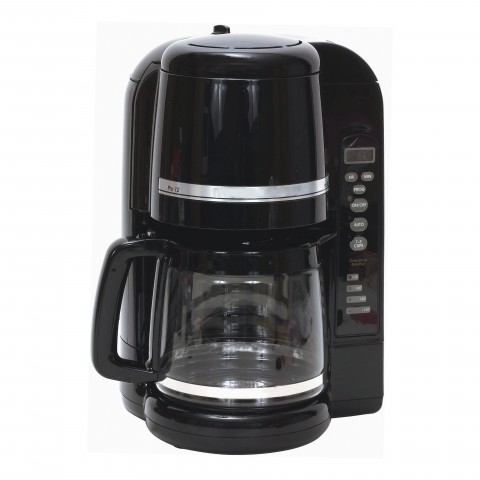
Noun: koffiemasjien
Translation: “coffee maker” / “coffee machine”
Use: Ek verkies koffie wat met die koffiemasjien gemaak is.
Translation: “I prefer coffee made with the coffee machine.”
Noun: broodrooster
Translation: “bread toaster”
Use: Die broodrooster is ‘n handige toestel.
Translation: “The bread toaster is a handy appliance.”
Noun: elektriese kosmenger
Translation: “electric food mixer”
Use: ‘n Elektriese kosmenger maak kosmaak maklik.
Translation: “An electric food mixer makes food preparation easy.”
Noun: blikoopmaker
Translation: “can opener”
Use: Gebruik die blikoopmaker op daardie blikkie tuna.
Translation: “Use the can opener on that tin of tuna.”
Noun: skottelgoedwasser
Translation: “dishwasher”
Use: Ek is baie dankbaar om ‘n skottelgoedwasser te hê.
Translation: “I’m very grateful to have a dishwasher.”
Noun: mikrogolf oond
Translation: “microwave oven”
Use: Daardie mikrogolf oond is skoon.
Translation: “That microwave oven is clean.”
Noun: haardroër
Translation: “hair dryer”
Use: Sy gebruik ‘n goeie haardroër.
Translation: “She uses a good hair dryer.”
Noun: lugverkoeler or lugversorger
Translation: “air conditioner”
Use: Die huis het ‘n nuwe lugverkoeler nodig.
Translation: “The house needs a new air conditioner.”
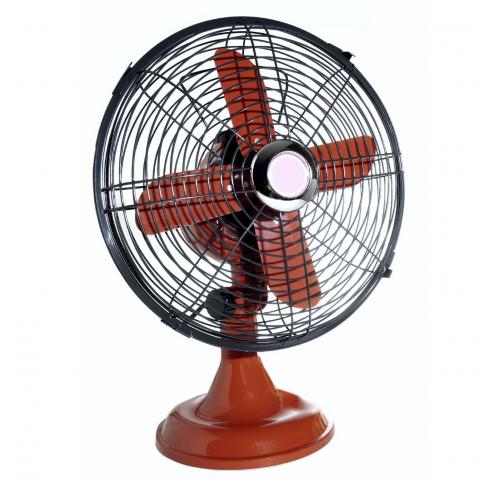
Noun: waaier
Translation: “fan”
Use: Dis warm, sit die waaier aan, asseblief.
Translation: “It’s hot, switch on the fan, please.”
Note: Dis is a contraction of dit is—exactly the same as “it’s” is a contraction of “it is.”
Noun: verwarmer
Translation: “heater”
Use: Ons gebruik die verwarmer net in die winter.
Translation: “We use the heater only during the winter.”
Noun: wasmasjien
Translation: “washing machine”
Use: Gebruik jy ooit jou wasmasjien?
Translation: “Do you ever use your washing machine?”
Noun: tuimeldroër
Translation: “tumble dryer”
Use: Die klere in die tuimeldroër is droog.
Translation: “The clothes in the tumble dryer are dry.”
2. Nouns in Afrikaans: Technology (tegnologie)
Noun: televisie
Translation: “television”
Use: Ons het ‘n groot televisie.
Translation: “We have a large television.”
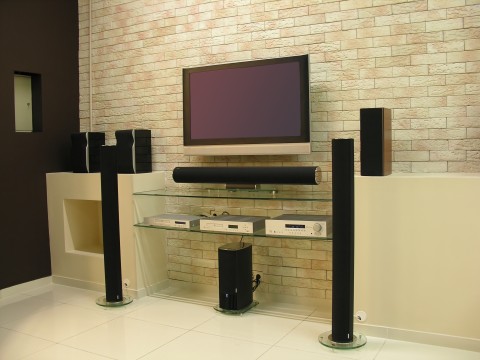
Noun: DVD speler
Translation: “DVD player”
Use: Hy skakel die DVD speler aan.
Translation: “He switches on the DVD player.”
Noun: afstandbeheerder
Translation: “remote controller”
Use: Waar is die afstandbeheerder?
Translation: “Where is the remote controller?”
Noun: rekenaar
Translation: “computer”
Use: Hierdie is ‘n ou rekenaar.
Translation: “This is an old computer.”
Noun: skootrekenaar
Translation: “laptop”
Use: Ek verkies skootrekenaars.
Translation: “I prefer laptops.”
Noun: slimfoon
Translation: “smartphone”
Use: iPhone is my gunsteling slimfoon.
Translation: “The iPhone is my favorite smartphone.”
Noun: faksmasjien
Translation: “fax machine”
Use: Weet jy hoe die faksmasjien werk?
Translation: “Do you know how the fax machine works?”
Noun: fotokopiëerder/fotokopiëerapparaat
Translation: “photocopier”
Use: Daar is nie papier in die fotokopiëerder nie.
Translation: “There’s no paper in the photocopier.”

Noun: telefoon
Translation: “telephone”
Use: Die telefoon lui.
Translation: “The telephone rings.”
Noun: selfoon
Translation: “cell phone”
Use: Dit is ‘n duur selfoon daardie.
Translation: “That is an expensive cell phone.”
Noun: batterylaaier
Translation: “battery charger”
Use: Die batterylaaier is op die rak.
Translation: “The battery charger is on the shelf.”
Noun: oorfone
Translation: “headphone” / “earphones”
Use: Daardie is goeie oorfone.
Translation: “Those are good earphones.”
Noun: webwerf
Translation: “website”
Use: Hy het sy eie webwerf.
Translation: “He has his own website.”
Noun: wifi; internet; account; file; image/pi; app
Note: For use in reference to web-technology, these words don’t have Afrikaans translations. Sometimes foto (photo) is used for “image/pic.” However, almost every Afrikaans-speaking person will understand you if you use these English terms in context!
Noun: wagwoord
Translation: “password”
Use: Wat is jou wagwoord vir hierdie app?
Translation: “What is your password for this app?”
Noun: wifi konneksie
Translation: “wifi connection”
Use: Dis ‘n uitstekende wifi konneksie hierdie.
Translation: “It’s an excellent wifi connection.”
Note: Again, dis is a contraction of dit is. Exactly the same as “it’s” is a contraction of “it is.”
3. Nouns in Afrikaans: Transport (vervoer)

Noun: motorkar
Translation: “motor car”
Use: Sy ry ‘n rooi motorkar.
Translation: “She drives a red motor car.”
Note: As in English, motorkar is most often abbreviated to just motor or kar.
Noun: voertuig and trok
Translation: “vehicle” and “truck”
Use: ‘n Trok is ‘n groot voertuig.
Translation: “A truck is a large vehicle.”
Noun: trein
Translation: “train”
Use: Die Blou Trein is die mees luukse treindiens in Suid Afrika.
Translation: “The Blue Train is the most luxurious train service in South Africa.”
Noun: treinspoor and stasie
Translation: “railroad” and “station”
Use: Daardie treinspoor lei nie na die stasie nie.
Translation: “That railroad doesn’t lead to the station.”
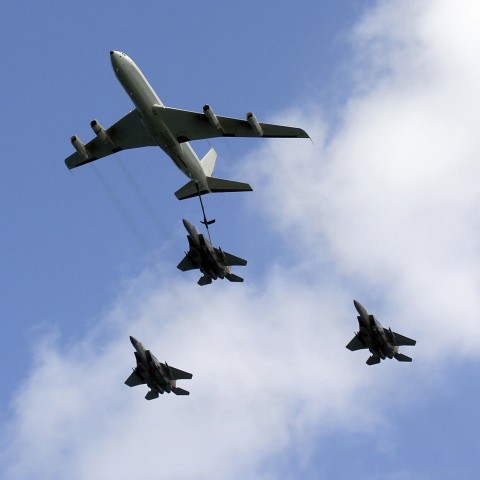
Noun: vliegtuig
Translation: “airplane”
Use: Ons vliegtuig styg binnekort op.
Translation: “Our airplane takes off soon.”
Noun: lughawe
Translation: “airport”
Use: OR Tambo is Suid Afrika se grootste lughawe.
Translation: “OR Tambo is South Africa’s largest airport.”
Noun: boot
Translation: “boat”
Use: Die boot seil vinnig.
Translation: “The boat sails fast.”
Noun: hawe
Translation: “harbor”
Use: Dis winderig by die hawe.
Translation: “It’s windy at the harbor.”
Note: Can you spot the contraction…?!
Noun: motorfiets
Translation: “motorbike”
Use: My pa het ‘n groot motorfiets.
Translation: “My dad has a large motorbike.”
Noun: huurmotor and taxi
Translation: “rental car” and “taxi”
Use: Moet ons ‘n huurmotor of ‘n taxi kry?
Translation: “Shall we get a rental car or a taxi?”
Noun: taxistaanplek
Translation: “taxi rank”
Use: Die taxistaanplek is nie veilig laat in die nag nie.
Translation: “It’s not safe at the taxi rank late at night.”
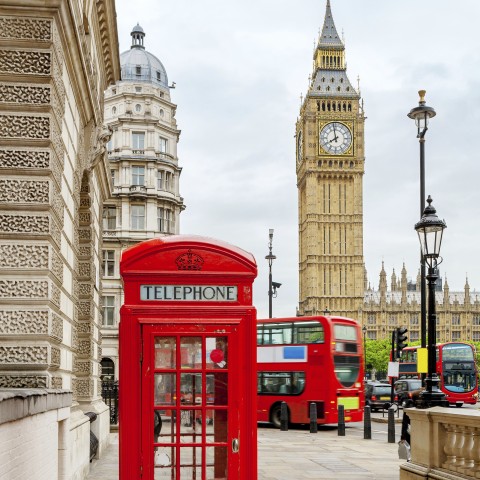
Noun: bus and busstop
Translation: “bus” and “bus stop”
Use: Neem die groot, rooi bus by die busstop.
Translation: “Take the large, red bus at the bus stop.”
Noun: fiets
Translation: “bike”
Use: Om met die fiets te ry hou jou fiks.
Translation: “Riding a bike keeps you fit.”
Noun: verkeerslig or robot
Translation: “traffic light”
Use: Die verkeerslig/robot is groen; jy kan gaan.
Translation: “The traffic light is green; you can go.”
Note: Even English-speaking South Africans refer to a traffic light as a “robot!” This term was apparently carried over from a time when policemen regulated traffic. Their stilted, unnatural movements earned them the nickname of “robot policemen,” eventually shortened to just “robot.”
Noun: pad and hoofweg
Translation: “road” and “highway”
Use: Hierdie is die pad na die hoofweg.
Translation: “This is the road to the highway.”
Noun: kruising
Translation: “intersection”
Use: Draai regs by die eerste kruising.
Translation: “Turn right at the first intersection.”
Noun: brug and duikweg
Translation: “bridge” and “subway”
Use: Die duikweg onder daardie brug was oorspoel na die reën.
Translation: “The subway underneath that bridge was flooded after the rain.”

4. Nouns in Afrikaans: Services (dienste)
Afrikaans nouns distinguish between the masculine and the feminine for words pertaining to people and animals, with some exceptions. Keep this in mind as you read through this Afrikaans nouns list.
Noun: dokter and hospitaal
Translation: “doctor” and “hospital”
Use: Ek moet ‘n dokter by die hospitaal gaan sien.
Translation: “I need to see a doctor at the hospital.”
Note: Dokter is used for both male and female physicians.

Noun: noodvoertuig and ambulans
Translation: “emergency vehicle” and “ambulance”
Use: Daar was ‘n ambulans en ‘n ander noodvoertuig.
Translation: “There was an ambulance and another emergency vehicle.”
Noun: tandarts and tandpyn
Translation: “dentist” and “toothache”
Use: Hy het tandpyn en moet ‘n tandaarts gaan sien.
Translation: “He has a toothache and must see a dentist.”
Note: Tandarts is used for both male and female dentists.
Noun: brandweer and vuur
Translation: “fire department” and “fire”
Use: Bel die brandweer oor die vuur in die berge.
Translation: “Call the fire department about the fire in the mountains.”
Note: Male firefighter: brandweerman. Female firefighter: brandweervrou.

Noun: apteekster and apteek
Translation: “pharmacist” and “pharmacy”
Use: My tannie is ‘n apteekster. Haar apteek is in die hoofstraat.
Translation: “My aunt is a pharmacist. Her pharmacy is in the main street.”
Note: Male pharmacist: apteker. Female pharmacist: apteekster.
Noun: polisie and polisiestasie
Translation: “police” and “police station”
Use: Die polisie werk by die polisie stasie.
Translation: “The police works at the police station.”
Note: Policeman: polisieman. Police woman: polisievrou.
5. Nouns in Afrikaans: Careers and Jobs (loopbane and werk)

Noun: prokureur
Translation: “lawyer”
Use: Sy wil ‘n prokureur word.
Translation: “She wants to become a lawyer.”
Note: There’s no gender differentiation between male and female lawyers in Afrikaans.
Noun: elektrisiën
Translation: “electrician”
Use: Bel die elektrisiën, ons krag is af.
Translation: “Call the electrician, our electricity is down.”
Note: Elektrisiën is used for both male and female electricians.
Noun: loodgieter
Translation: “plumber”
Use: Die loodgieter het die lek reggemaak.
Translation: “The plumber fixed the leak.”
Note: As in English, there’s no distinction between a male and a female plumber in Afrikaans.
Noun: onderwyser (male) and onderwyseres (female) and skool
Translation: “teacher” and “school”
Use: Daardie onderwyser en onderwyseres by my skool is getroud.
Translation: “Those two teachers at my school are married.”
Note: Onderwyser is a male teacher in Afrikaans, and onderwyseres is a female teacher.

Noun: vlieënier
Translation: “pilot”
Use: My man is ‘n vlieënier in die lugmag.
Translation: “My husband is a pilot in the air force.”
Note: Vlieënier is used for both genders in Afrikaans.
Noun: akteur and aktrise
Translation: “actor” and “actress”
Use: Die mooi aktrise is getroud met die goed-geboude akteur.
Translation: “The pretty actress is married to the well-built actor.”
Note: Aktrise is “actress” and akteur is “actor.”

Noun: sanger and sangeres
Translation: “singer” and “songstress”
Use: Die sanger het ‘n diep stem, en die sangeres het ‘n hoë een.
Translation: “The singer has a deep voice, and the songstress has a high one.”
Note: Sangeres is “songstress” and sanger is “singer.”
Noun: kunstenaar and kunstenares
Translation: “artist”
Use: Die kunstenaar se baard is lank, terwyl die kunstenares se hare lank is.
Translation: “The (male) artist’s beard is long, while the (female) artist’s hair is long.”
Note: Kunstenaar is the male artist, and kunstenares is the female artist.
6. Nouns in Afrikaans: Animals
Noun: mannetjie and wyfie and klein katjies
Translation: “male” and “female” animals and “kittens”
Use: Dis ‘n mooi wyfie en groot mannetjie kat. Hulle gaan lieflike klein katjies hê.
Translation: “It’s a pretty molly and a large tom cat. They will have lovely kittens.”
Note: These terms, mannetjie and wyfie, are used to describe gender in many animal species where no specific names exist in Afrikaans.
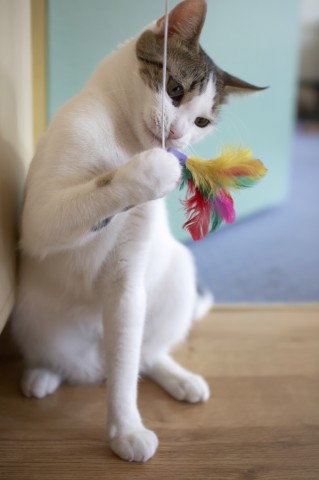
Noun: hen and haan and kuikens
Translation: “hen” and “rooster” and “chicks”
Use: Die haan kraai terwyl die hen en kuikens rondloop.
Translation: “The rooster crows while the hen and chicks roam about.”
Note: In Afrikaans, hen is “hen” and haan is “rooster.”
Noun: teef/tefie and reun
Translation: “female dog” and “male dog”
Use: Hierdie tefie en reun het klein hondjies.
Translation: “This female dog and male dog have puppies.”
Note: In Afrikaans, teef or tefie is a female “dog” and reun is a male “dog.”
Noun: hings and merrie and stal
Translation: “stallion” and “mare” and “stable”
Use: Die hings en merrie slaap in die stal.
Translation: “The stallion and mare sleep in the stable.”
Note: In Afrikaans, hings is “stallion” and merrie is “mare.”
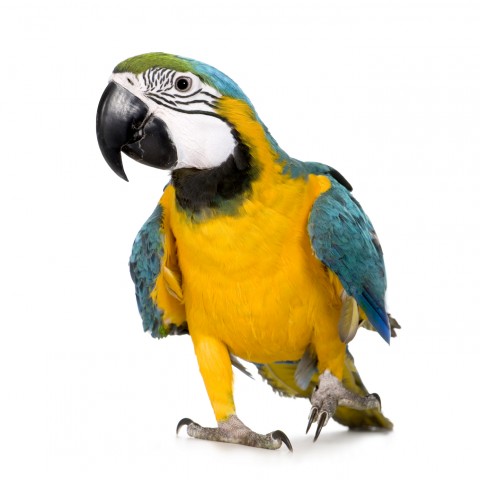
Noun: papegaai
Translation: “parrot”
Use: My papegaai kan praat..
Translation: “My parrot can talk.”
Note: There is no gender-specific names for papegaai in Afrikaans. To differentiate, you could refer to a mannetjie papegaai (male parrot) and a wyfie papegaai (female parrot), like with cats.
Noun: volstruis
Translation: “ostrich”
Use: Moenie dat ‘n volstruis jou jaag nie.
Translation: “Don’t let an ostrich chase you.”
Note: There’s no gender differentiation for volstruise.
What’s your favorite pet or animal? Share with us in the comments!
7. AfrikaansPod101 Teaches You the Best Nouns – Easily and Fast!

Our goal is to help you learn a new language as easily and with as much fun as possible! Our focus is also on usefulness. For instance, learn your culturally-relevant and topic-related Afrikaans nouns through hundreds of lessons, such as the Top 20 Words You’ll Need for the Internet and Back to School Essentials. Or, prepare yourself for a night out with this relevant restaurant vocabulary lesson. Then blow your Afrikaans friends’ minds with your mastery of the 100 Core Afrikaans Words!
AfrikaansPod101 is one of the most forward online language-learning platforms, where you can explore this quaint and descriptive language in various formats. These include sound and video recordings, downloadable PDF lessons, apps, and more, all geared for your easy access. Other helpful tools include a comprehensive online Afrikaans dictionary, essential Afrikaans Key Phrases, and numerous Vocabulary Lists. What’s not to love? Sign up today!













